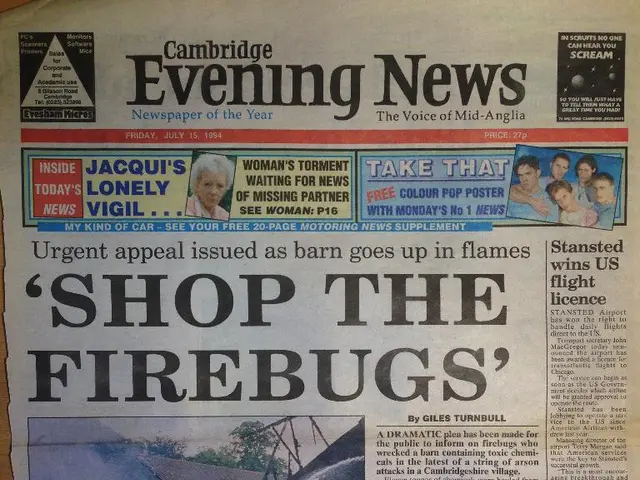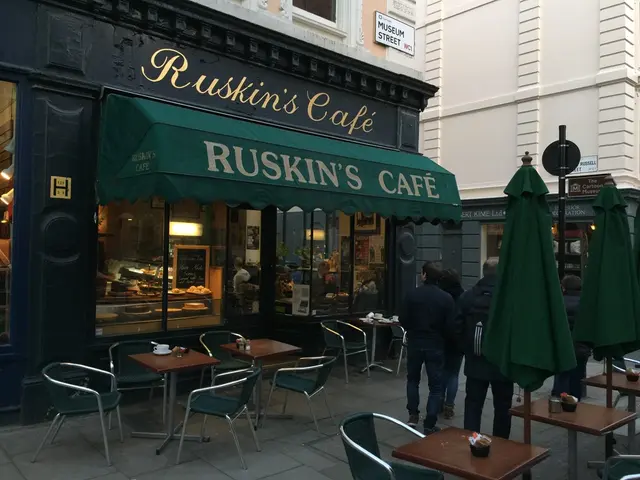Understanding the Differences: There, Their, They're – A Quick Guide
🚀 Wanna ace grammar? It's a piece of cake! 🍰 Take a gander at these often confused word pairs: "there" and "their," "there" and "they're." They sound oh-so similar, but you gotta know their difference!
Newbie writers and English language learners might find these bad boys tricky, but don't fret! We're here to help out. Let's dive in and make it crystal clear with some simple explanations and B-rad examples.
Their, there, they're: Definitions and Usage 🤓
🎉 Time for a vocab recap!
What's the deal with "there"?
Hey, guess what? "There" is an adverb that lets people or things know where they're located. It's used to point out locations or start sentences. Check these examples out:
- "She's over there by the tree."
- "There is a pen on the desk."
- "There are many people at the party."
🎯 Pro tip: "There" tells you a spot or location!
What's "their" all about?
"Their" is a possessive pronoun that clues you in about who or what something belongs to. Consider these examples:
- "Their car is parked in the garage."
- "The children love their new toys."
- "The couple is proud of their new house."
🎯 Pro tip: "Their" is like a crown that shows who rules the roost!
What's up with "they're"?
"They're" is a contraction of "they are." It's used to connect "they" with the verb "are." Try these examples:
- "They're going to the movies tonight."
- "I think they're excited about the party."
- "They're not sure if they can make it."
🎯 Pro tip: "They're" is your BFF, shortening "they are" for ya!
Master the difference between there, their, and they're with Examples 👦👧👱🧔
Let's clarify their meanings with some examples:
- "There" - There are many books on the shelf.
- "Their" - The children are playing with their toys.
- "They're" - They're going to the park to play soccer.
- "There" - The store is over there on the right.
- "Their" - The family is going on their vacation next week.
- "They're" - They're planning a surprise party for their friend.
- "There" - There is no food left in the kitchen.
- "Their" - The couple is painting their living room.
- "They're" - They're leaving to meet the family at the restaurant.
🔥 Pro tip: Practice smartly! Recognize when to use which word and become unstoppable!
Take-aways 🎁
Now that you've got a good handle on "there," "their," and "they're," write with confidence! Keep this in mind:
🎯 Pro tip:- "Their" is possessive, like "my."- "There" points to a place, like "over here."- "They're" is a contraction of "they are," linking "they" and "are."
You got this! Remember to relax, have fun, and always strive to improve!
Bonus Reading 🤓🤓🤓
Write like a pro:
- Affect vs. Effect: What's the Difference?
- The Difference Between 'Although' and 'Though' Explained
- Six Common Word Choice Errors in Academic Writing
- Continually vs. Continuously: Be a Wise Word Wizard
Academic writing can benefit from understanding the differences between "there," "their," and "they're," which are often confused. These words function differently in a sentence, with "there" indicating location, "their" showing possession, and "they're" being a contraction of "they are."
In the realm of education-and-self-development, one can gain better writing skills by studying the correct use of these words and applying them in their lifestyle. For example, learning the difference between "there" and "their" can help in better expressing one's ideas in academic writing, while understanding "they're" can enhance conversational English.







